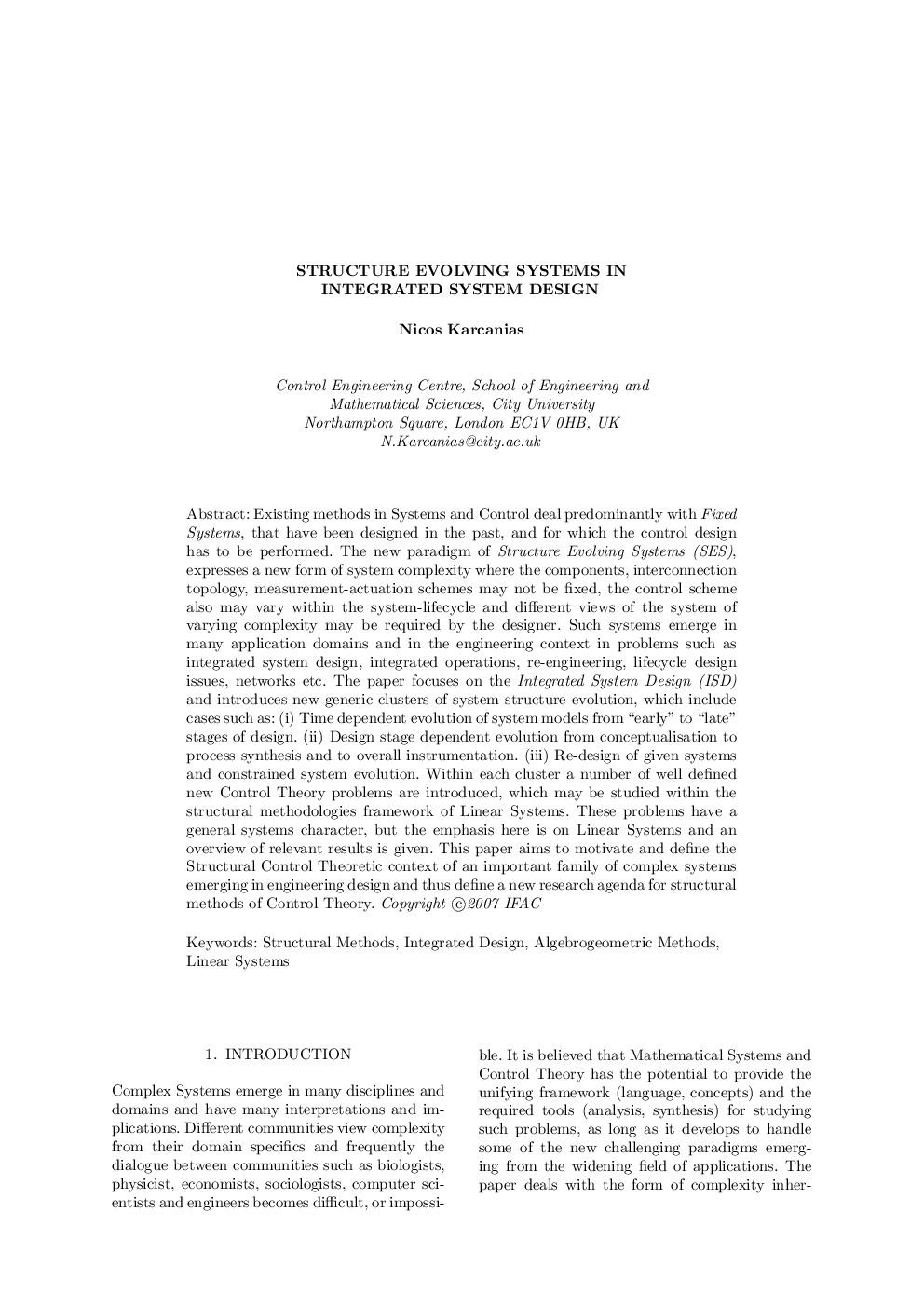| Article ID | Journal | Published Year | Pages | File Type |
|---|---|---|---|---|
| 722793 | IFAC Proceedings Volumes | 2007 | 26 Pages |
Existing methods in Systems and Control deal predominantly with Fixed Systems, that have been designed in the past, and for which the control design has to be performed. The new paradigm of Structure Evolving Systems (SES), expresses a new form of system complexity where the components, interconnection topology, measurement-actuation schemes may not be fixed, the control scheme also may vary within the system-lifecycle and different views of the system of varying complexity may be required by the designer. Such systems emerge in many application domains and in the engineering context in problems such as integrated system design, integrated operations, re-engineering, lifecycle design issues, networks etc. The paper focuses on the Integrated System Design (ISD) and introduces new generic clusters of system structure evolution, which include cases such as: (i) Time dependent evolution of system models from “early” to “late” stages of design, (ii) Design stage dependent evolution from conceptualisation to process synthesis and to overall instrumentation, (iii) Re-design of given systems and constrained system evolution. Within each cluster a number of well defined new Control Theory problems are introduced, which may be studied within the structural methodologies framework of Linear Systems. These problems have a general systems character, but the emphasis here is on Linear Systems and an overview of relevant results is given. This paper aims to motivate and define the Structural Control Theoretic context of an important family of complex systems emerging in engineering design and thus define a new research agenda for structural methods of Control Theory.
